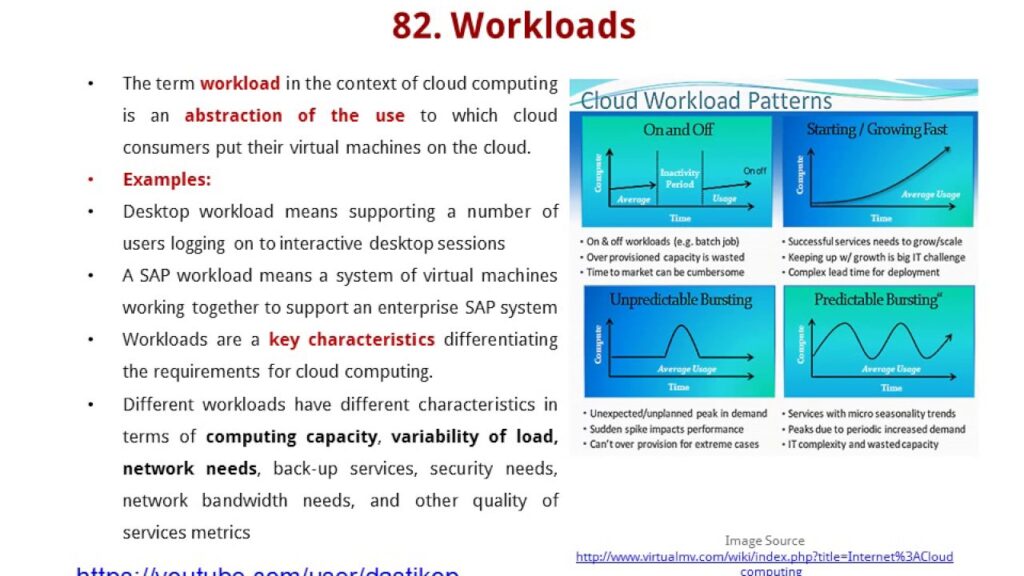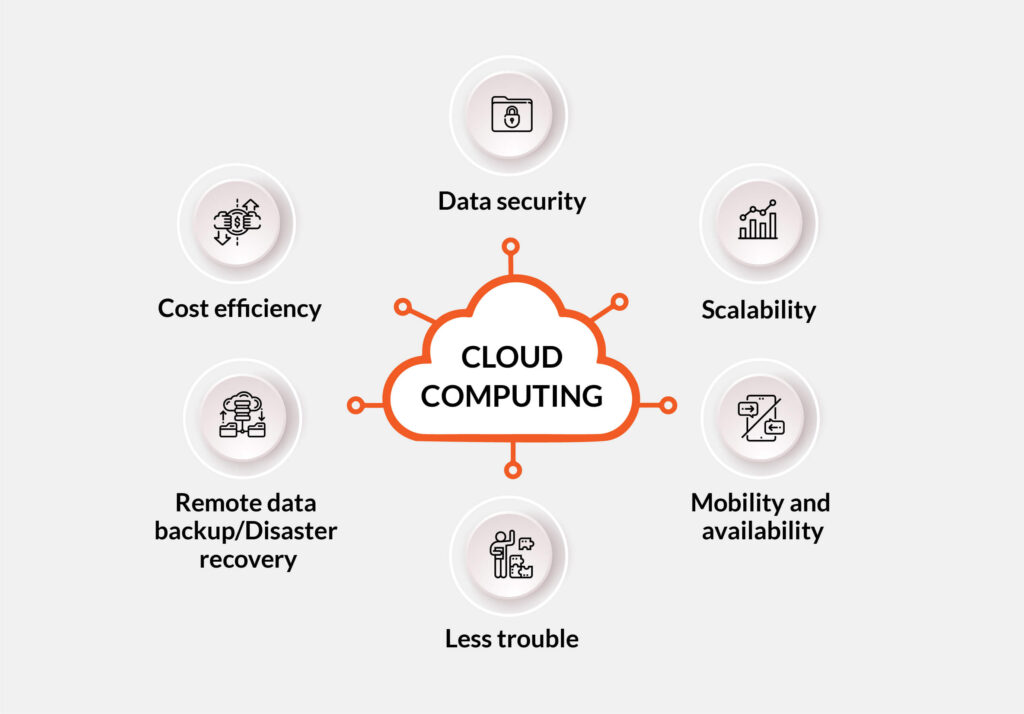As technology continues to evolve, we have seen a rise in the adoption of cloud computing. It is a technology that has revolutionized the way businesses and individuals store, manage, and access their data. Cloud computing has become a buzzword that has caught the attention of many in the tech industry. But why should one learn about it? In this article, we will explore the reasons why learning cloud computing can be beneficial in today’s digital age.
Firstly, cloud computing has become an integral part of the IT landscape. It is a technology that is here to stay, and learning about it can help one keep up with the latest trends and advancements in the industry. Whether you are an IT professional, a business owner, or a student, understanding cloud computing can give you a competitive edge in your career. Moreover, cloud computing offers a wide range of benefits such as scalability, security, and cost-efficiency. By learning about cloud computing, you can leverage these benefits to enhance your productivity and efficiency, both personally and professionally.
Cloud computing is an invaluable skill to learn in today’s digital world. It offers businesses the ability to access and store data remotely, saving time and cost. Cloud computing offers a secure, cost-effective and scalable way to store and share data, as well as the benefit of increased speed and agility. It also provides the ability to access data from multiple devices, meaning you can access your data anytime and anywhere.

Why Learn Cloud Computing?
Cloud computing is the process of delivering computing services such as software, networking, data storage, and more, over the internet. It has become an increasingly popular way for businesses to access IT services, as it is often more cost-effective and efficient than traditional on-premise IT solutions. In this article, we’ll explore the reasons why learning cloud computing is important for businesses and individuals alike.
Reduced Cost
One of the main benefits of cloud computing is the cost savings that come with it. By taking advantage of cloud computing services, businesses can reduce their upfront costs, as they are only paying for the services and resources they need. This can help businesses save on IT costs and free up funds for other investments. Additionally, cloud computing can help businesses reduce their energy consumption, which can further reduce costs.
Another way that cloud computing can save money is by reducing the need for in-house IT staff. Cloud providers have already invested in the necessary tools and resources, so businesses don’t need to hire additional staff to manage and maintain the IT infrastructure. This can save businesses time and money, as they don’t need to pay for additional personnel.
Increased Productivity
Cloud computing can also help businesses increase their productivity. By taking advantage of cloud services, businesses can access their applications and data from any device, anytime, from anywhere. This eliminates the need for employees to be tied to a specific location, as they can access the necessary resources from any device. This can help businesses save time, as employees don’t need to travel to a physical office to access the necessary applications and data.
In addition, cloud computing can help businesses reduce the time it takes to deploy new applications and services. By taking advantage of cloud services, businesses can quickly and easily deploy new applications and services. This eliminates the need for businesses to spend time and money on setting up new hardware and software.
Improved Security
Cloud computing can also help businesses improve their security. Cloud providers invest heavily in security technologies and practices, which can help businesses protect their data and applications. This can help businesses reduce the risk of data breaches and other security threats. Additionally, cloud providers often have built-in disaster recovery and redundancy features, which can help businesses protect their data in the event of an outage or other issue.
Flexibility and Scalability
Another advantage of cloud computing is the flexibility and scalability it provides. By taking advantage of cloud services, businesses can quickly and easily scale their IT resources as needed. This eliminates the need for businesses to purchase new hardware or software every time their IT needs change. Additionally, cloud services can help businesses quickly respond to changes in demand, as they can quickly scale their resources up or down as needed.
Future-Proofing
Finally, by taking advantage of cloud computing, businesses can future-proof their IT infrastructure. Cloud computing can help businesses stay ahead of the curve, as they can quickly and easily access the latest technologies and services. This can help businesses stay competitive and ensure that their IT infrastructure is up to date.
Frequently Asked Questions
Cloud computing is the use of remote servers hosted on the Internet to store, manage, and process data. It is a revolutionary technology that has been adopted by businesses and organizations around the world.
Why learn cloud computing?
Learning cloud computing can open up a world of opportunities for individuals and businesses. For individuals, it is a great tool to increase their skillset and add value to their career. For businesses, it can help them become more agile and efficient by reducing their IT costs and making their operations more secure. Cloud computing can also help organizations become more competitive in the global market.
For individuals, cloud computing provides the chance to develop their knowledge of the most modern technologies in the market. It can also open up new career paths, such as cloud architect, cloud engineer, and cloud consultant. Additionally, cloud computing can help individuals become more creative in how they use technology to solve problems.
For businesses, cloud computing can help them reduce their IT costs and increase their efficiency. It can also provide better security for their data and applications, and increase their ability to scale their operations. Additionally, cloud computing can provide access to a global pool of talent and resources that would otherwise be inaccessible.
What are the advantages of cloud computing?
The advantages of cloud computing are numerous and far-reaching. One of the most obvious advantages is the cost savings associated with cloud computing. By using remote servers hosted on the Internet, businesses can reduce their IT costs significantly. Additionally, using cloud computing can help businesses become more agile and efficient by allowing them to quickly scale their operations up or down as needed.
Cloud computing also provides access to a global pool of talent and resources that would otherwise be inaccessible. It also allows businesses to become more secure and protect their data, applications, and services from cyber threats. Additionally, businesses can benefit from the latest technologies and innovations, such as artificial intelligence and machine learning, that are being implemented in the cloud.
What is the difference between public and private cloud computing?
The main difference between public and private cloud computing is the level of control. Public cloud computing is offered by a third-party provider and is available to anyone with an Internet connection. In public cloud computing, the provider owns and operates the infrastructure, and the user has no control over it. Private cloud computing is provided by an organization and is only available to its members. Private cloud computing allows the organization to control the infrastructure and have full control over its operations.
Another difference between public and private cloud computing is the cost. Public cloud computing is often less expensive than private cloud solutions due to its shared infrastructure. Private cloud solutions, on the other hand, can be more expensive as the organization has to pay for the hardware and software as well as the staff to maintain it.
What are the benefits of cloud computing for businesses?
Cloud computing offers a number of benefits for businesses. One of the most significant benefits is cost savings. By using remote servers hosted on the Internet, businesses can reduce their IT costs significantly. Additionally, using cloud computing can help businesses become more agile and efficient by allowing them to quickly scale their operations up or down as needed.
Cloud computing also provides access to a global pool of talent and resources that would otherwise be inaccessible. It also allows businesses to become more secure and protect their data, applications, and services from cyber threats. Additionally, cloud computing can provide access to the latest technologies and innovations, such as artificial intelligence and machine learning, that are being implemented in the cloud.
What are the risks associated with cloud computing?
Although cloud computing offers numerous benefits, it also comes with some risks. One of the most common risks associated with cloud computing is security. As the cloud is a shared infrastructure, there is always the risk of data being exposed due to a security breach. Additionally, cloud services can be vulnerable to malicious attacks such as DDoS attacks, which can cause disruption and downtime.
Another risk associated with cloud computing is compliance. Organizations must ensure that their cloud services comply with the applicable laws and regulations. Additionally, organizations must ensure that their cloud service providers are compliant with security and privacy regulations such as GDPR.
Finally, cloud services can be vulnerable to outages and disruptions due to a number of factors, such as power outages or network issues. This can cause disruption and downtime, which can have a negative impact on businesses.

In conclusion, the world of technology is rapidly evolving, and cloud computing has become an essential part of it. Therefore, learning and mastering cloud computing is not only essential but also beneficial. The benefits range from cost-effectiveness, flexibility, scalability, and security. Cloud computing has revolutionized the way businesses operate, and it is here to stay.
Furthermore, learning cloud computing will equip you with the necessary skills to remain relevant and competitive in today’s job market. As more and more businesses adopt cloud computing, the demand for cloud professionals continues to rise. Therefore, investing in learning cloud computing will open up new opportunities for career growth and advancement. In summary, learning cloud computing is a wise investment that will pay off in the long run.



